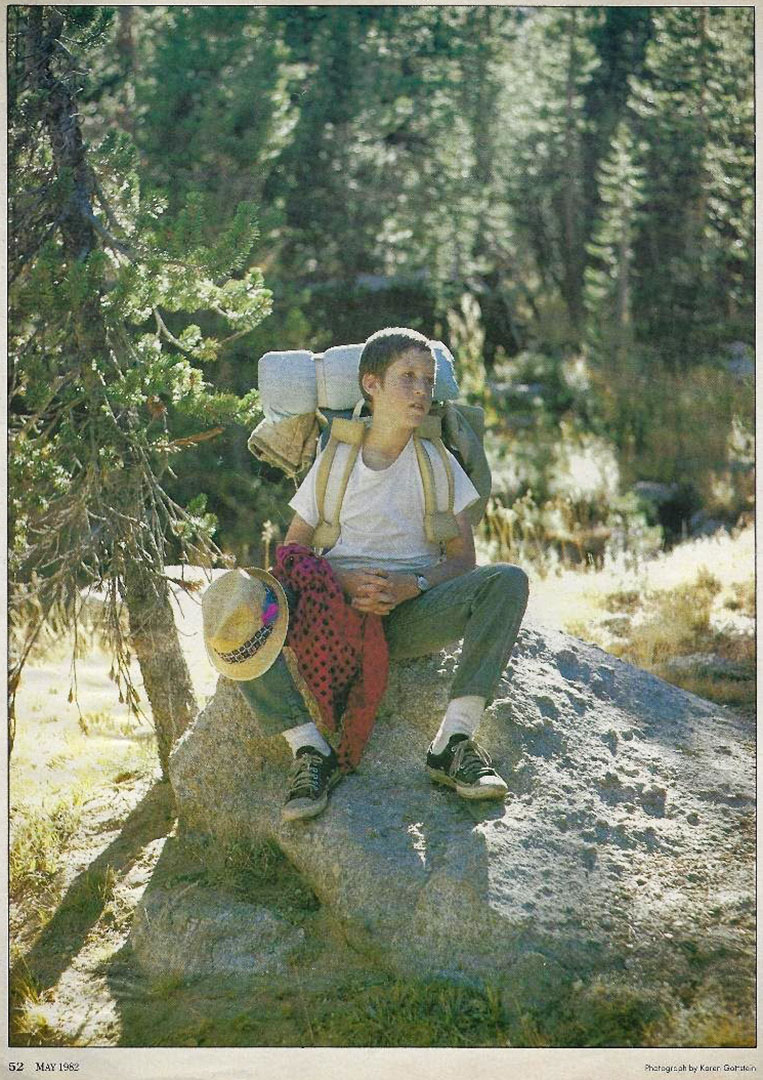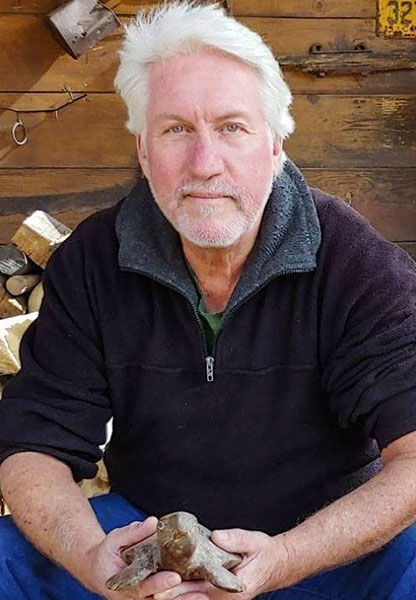Fishing
A Rite of Passage

the name of which escapes me now. I’m probably 10 or 11 years old.
For anyone who has ever fished, there was a first time, right? Someone with more experience (if they were enlisted to teach and were willing) got you out on the river, lake, bay, ocean — or wherever fish live — to try and catch them. An oft heard expression: fishing is the elusive act of trying to catch them…that’s why they call it fishing and not catching.
I was lucky to grow up in California, with a dad who organized numerous camping trips for his family. He was a poor kid from Chicago, and coming to the West Coast when he was 16, the mountains and ‘nature’ simply blew his mind. He and his brother-in-law, Barney, collaborated on many of these excursions with my uncle’s two sons, Dave and Les, as well as my brother, my sister, and me. Each year contained at least one or two infamous dual family camping trips. Catching trout was the primary focus. Because my birthday was in August, and our trips often included this date, my family would surprise me in the early years by secretly packing in a Sara Lee cake and we’d celebrate. Ah, such simple pleasures…
Dad gave all three of his kids the gift of nature. As the youngest of three, I was the last to join my family on these trips. Initially, we accessed the Sierra Nevada mountains by horse and mule — hiring ‘pack companies’ to bring us into the high-altitude backcountry for trips that would span at least a week at a time.
Eventually, the pack-in-by-horse trips morphed into backpacking in the 1960s. Dad determined that the minimum age to go backpacking was seven, the theory being that we were by then physically strong enough to carry our own gear: sleeping bag, pad, food, etc.
My sister Karen was eight years older than me, my brother Dan – six years. Karen had a childhood friend, Wendy who often came with us. Everyone including dad (mom never joined us on these trips) took on the responsibility of teaching me how to fish for trout. As part of the initial training, dad, Karen or Dan would hook a fish and then hand the rod over to me to reel it in. Oh, the thrill of it!
My only earlier memory of catching a fish was when we attended the annual Sports and Boat show at the Cow Palace in San Francisco. I remember going there to look at the shiny new boats, but mostly because the pack companies showcasing their services, primarily on the Eastern side of the Sierras, would hand out glossy black and white brochures, attempting to lure business their way. There was always a fishing pool set up where kids like me would be handed a rod and reel, and catch a six or eight-inch rainbow trout to bring home. I loved doing this! It whetted my appetite for the day when I could finally join my siblings for the real deal.
Our bait of choice was live worms. Though we also had salmon eggs and lures for spinning, we really never used flies, or tried to learn the art of fly fishing. This was before ‘catch and release’ was in vogue, and we cooked and ate every fish we ever caught. Fresh fried trout in the mountains? Yeow! I never got tired of eating that delicacy and throwing the bones back into the fire.
But trout are wily critters. If the water where they congregated was quiet, for example, a smooth surfaced stream that meandered through an alpine meadow, creeping up to a pool was paramount. My brother convinced me that even the sound of our footsteps on the grass banks could telegraph through the ground and into the water, spooking the fish and leaving our bait uncontested.
Stealth was a big part of approaching a pool where the trout were swimming. We would let our bait start at the rapid and drift into the deeper part of the water. This was the most natural looking way for food to travel in a stream. Keeping out of sight was important too. If you could see the trout, they could see you, and I remember whispering on these quiet streams.
When you felt the tug of a fish biting, it was essential to let the trout work it over until you felt a series of tugs before giving the tip of your rod a slight upward jerk to set the hook. Then the fight began, and the thrill of landing a fish commenced.
There were a few of these trips when we invited a family friend, named Charlie, to join us. Charlie had not had the benefit of learning to fish as a child. My dad took it upon himself to teach him. I remember being on a trout stream with them and my dad instructing him about the process of letting the fish nibble the bait before giving the rod tip a little jerk to set the hook. In his excitement, Charlie jerked the rod so hard, this poor little rainbow trout was launched out of the stream like an underwater missile. The fish proceeded up and over our heads, and behind us a good forty feet. With the hook having come out of its mouth, we now had to try to find this fish in the high grass. Stories like these become instant family lore.
When I remember fishing as a child, the task of teaching me fell to my brother more often than not. Never losing patience with the kid brother whose monofilament line would get horribly tangled at the reel, he’d patiently untangle it until I magically and mysteriously fouled it again. It took forever to remember to keep tension on the line, whether casting out, or keeping the rod tip up once a trout was hooked. I would eventually master this, but the memory of my brother’s seemingly inexhaustible composure is what I still remember today, almost six decades later.
I’m glad that our dad prioritized learning how to fish while camping in the high-altitude Sierras with cold nights and incredible views as his gift to his kids.
I haven’t fished in many years, but it is still very much a part of my DNA and a crystal-clear memory to bring up, fondly, at will.
Fishing is a learned skill. A rite of passage.

Adam Gottstein is a native of San Francisco who relocated to the Sierra Foothills in the mid 90s. Traveling back and forth between the City and a village of 100 inhabitants, the Delta was always a midway attraction. He used to keep a boat on Vieira’s Resort Island north of Rio Vista. He might again someday. Now in his 60s, writing might occupy more of his time. Contact, criticism, praise or general confabulatory discourse can start here: adamgott44@gmail.com

Leave a Reply